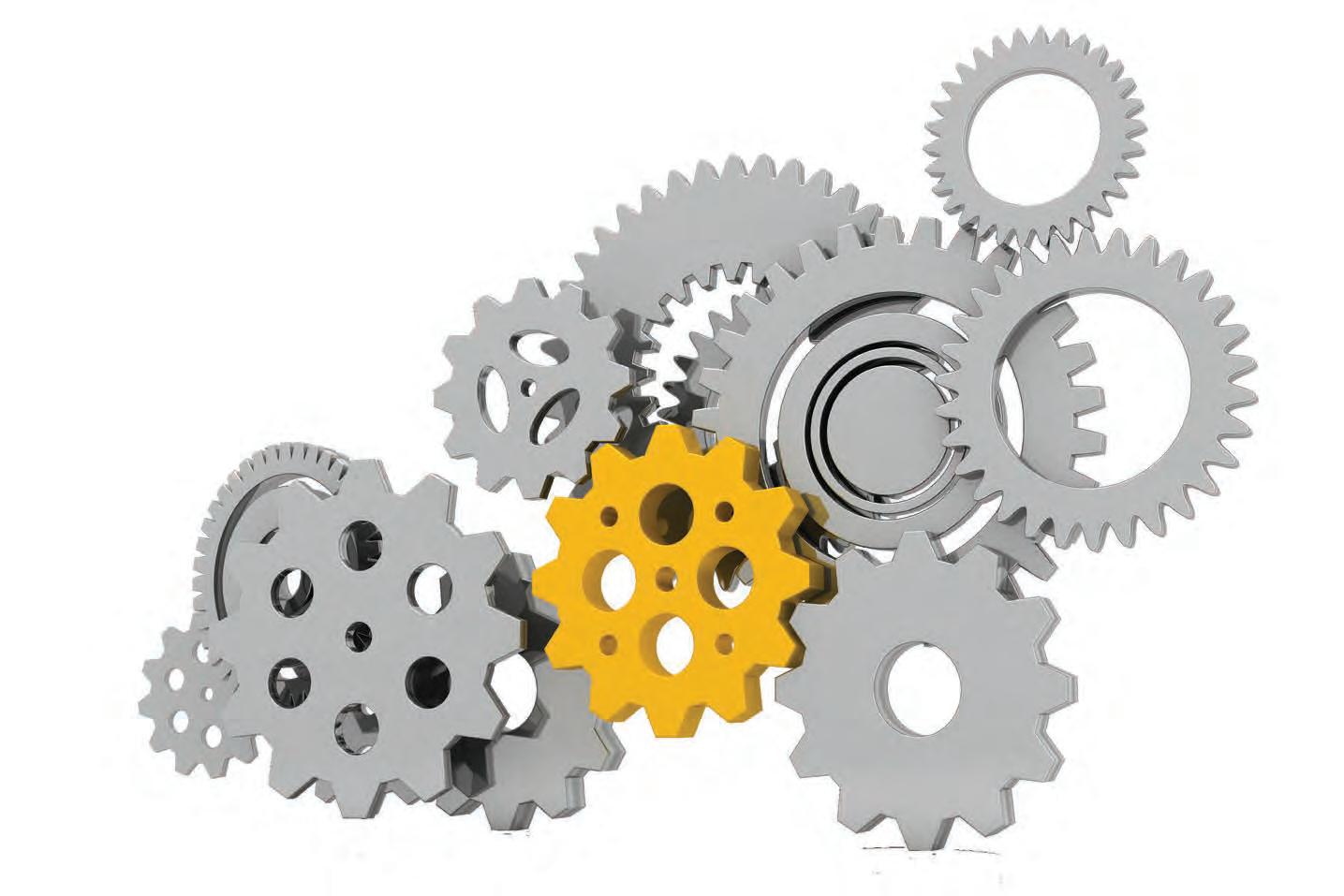Six Common Manufacturing Challenges You Can Solve with One ERP Solution

Investing in new business software is a major decision. Good technology choices are liberating; bad technology choices are limiting. You need a solution that will support stronger strategies, closer collaboration and improve productivity, to drive profitability.

Enterprise Resource Planning (ERP) software is an attractive option for many process manufacturers, because it integrates multiple capabilities. Rather than purchasing separate business applications, you can manage your operation holistically, while giving teams the functionality they need to manage specific areas of your organization.
If you’re wondering whether it’s time to invest in ERP, or you’re looking to upgrade your manufacturing ERP system, here are six common manufacturing challenges you can solve through one robust solution:
1. Access to Real-Time Data
Effective decision-making is only possible if you have accurate information. In the rapidly changing process manufacturing environment, this means up-to-the-minute data regarding every element of your production journey.
Real-time data is crucial for process manufacturers, because you’re following predefined recipes and formulas. Even with careful planning, problems will occur, such as a bad batch of raw materials. And these have to be accounted for in your batch fulfillment production calculations.
When you’re investing in ERP software, make sure you look for a solution that operates in real-time; otherwise, the system will be basing production data on set forecast targets. Up-to-the-minute calculations will ensure all your products are delivered to consistent, compliant standards and avoid you losing substantial revenue due to quality control issues.
2. Accurate Inventory Control
Finding the right inventory balance is really important. Too much stock and you’re overspending, plus surplus components are taking up warehouse space that could be put to more valuable use. Too little, and it interferes with your production schedule.
To meet the demands of your customers, you need to be proactive with inventory control. Waiting until stock is low doesn’t factor-in lead times; your schedule could be compromised while you wait for components to arrive. Worse, delivery could take longer than expected, or the need for an express service inflates the cost of materials.
ERP software gives your business accurate inventory visibility, so you can match customer demand with component availability. More than just showing you what’s there, smart solutions change the status of ingredients that have been assigned to production orders, so you don’t allocate the same stock twice.
An integrated inventory control application will also reconcile balances and monitor item usage, so you can quickly see deficiencies and understand reordering patterns.
3. End-to-End Lot Traceability
If you’re still entering product data into spreadsheets, you’re not alone. But it’s not the best way of working. Manually managing complex tables makes it difficult to accurately track raw ingredient lot numbers, especially where the ingredients are used in multiple finished goods or shipped to numerous customers.
With ERP software, you can integrate forward and backward lot tracking, accounting for product information from the beginning to the end of the manufacturing process.

Instant traceability will revolutionize your quality control, as you can easily isolate any contamination issues and conduct a product recall if necessary. At any point in time, you’ll be able to tell the extent to which a product has been affected, what items were contaminated, and where they originated.
You can also quarantine raw materials and finished goods until they pass inspection, helping to build reliable brand names and stay compliant with industry regulations.
4. Better Material Requirements Planning (MRP)
Managing inventory well is one thing, but effective materials requirement planning involves being able to look ahead. And that means having a data-powered solution that can analyze manufacturing capacity, historical production information and sales forecasting, to identify gaps between current stock and upcoming production orders.
An ERP system with built-in MRP will optimize your production schedule based on sales forecasts, inventory status, open orders and bills of materials – to enhance cash flow and increase profitability.
It will also reduce waste, as purchasing decisions are driven by accurate information on inventory levels and needs, calculating the latest possible time for buying raw materials while still meeting customer levels. Best of all, the minute something changes in your production schedule, your resource planning data will automatically update to reflect it.
5. Customizable Reporting
Knowing accurate data is flowing through your operational systems is a really key starting point. But to maximize the value of that information, you need simple, effective reporting tools. The aim is to make sure data is easily accessible and interpretable to everyone across your manufacturing business.

ERP software enhances your reporting capabilities on two fronts. Firstly, database information is automatically updated with each transaction, to optimize accuracy. This way, have complete confidence in your calculations when benchmarking capabilities and building target projections.
Secondly, a flexible process manufacturing ERP solution will enable you to customize reporting to make it simple or more complex, depending on who’s looking at the data. Each person in your business can build a personalized dashboard or set of reports based on their own, precise requirements, which can be digitally shared or externally distributed to validate decisions and performance trends.
6. Creating a Single Source of Data
The fast-moving, multichannel modern manufacturing environment is incredibly complex, with infinite streams of information flowing through your business at any point in time. The only way to work cohesively and make effective decisions is to ensure that everyone is working from the same data pool.
Without an ERP system, manufacturers spend hours manually pulling together data from different spreadsheets, accounting sources, batch tickets and sales orders, to discover your financial position. ERP can calculate this instantly, for a single, accurate version of the truth.
Investing in ERP software is an easy, effective way to reduce operational admin, as nobody has to duplicate information or perform multiple data searches. More importantly, ensuring everybody is working from a current, consistent information pool closes knowledge gaps between departments, to yield more knowledgeable (and profitable) business decisions.
Competitive edge, confident customers
Even with the best intentions, process manufacturers face bottlenecks and scheduling challenges every day. But these issues don’t have to be game-changers if you can react and re-plan effectively.

The right process manufacturing ERP software will allow your organization to make appropriate decisions every minute of the day, based on complete visibility of what’s happening across your operation.
A single source of real-time data, lot tracking, inventory control, MRP and integrated reporting will raise the bar on your business capabilities, and all this is possible through one ERP solution. With a single investment, you can succeed and prosper in changing environments, creating a competitive edge and increasing customer confidence.
Choosing feature-rich technology like ERP will empower your manufacturing business to holistically optimize every element of production; no need for bolt-on software or complex integrations. And if you work with a technology provider who understands your future needs as well as your current challenges, that ERP solution will flex and grow with your ambitions. A technology partner like Aptean.
Aptean: Building specific solutions for your business
In the world of enterprise resource planning software, we are the experts.
At Aptean, we know our clients’ industries inside and out. And every day, we put this deep knowledge to work by creating hyper-niche ERP software solutions that enhance your operational efficiency—and drive better results for your business.
As by-your-side partners, we provide the critical support you need, every step of the way. That’s why companies like yours rely on us to help them streamline, save and scale.
Are You Ready to Learn More?
We’d love to show you how to get ready for what’s next, now.
Contact us at info@aptean.com or visit www.aptean.com

About Aptean
Aptean is one of the world’s leading providers of industry-specific software. Our enterprise resource planning and supply chain solutions are uniquely designed to meet the needs of specialized manufacturers and distributors, while our compliance solutions serve specific markets such as finance and life sciences. With both cloud and on-premise deployment options, Aptean’s products, services and unmatched expertise help businesses of all sizes, across many industries, to scale and succeed. For more information, visit www.aptean.com.
